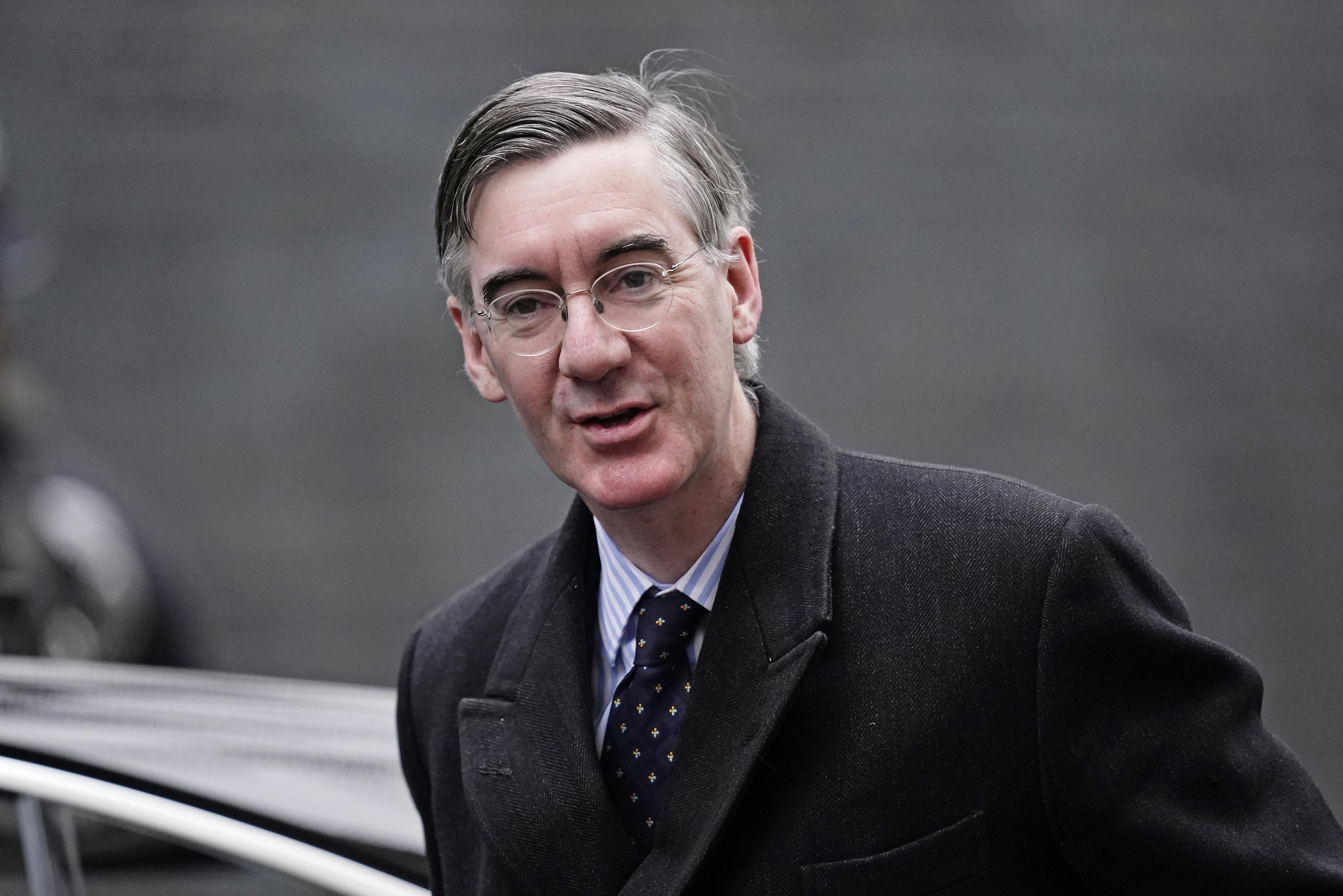Rees-Mogg defends jury system as Tory MPs raise concerns following Colston trial
The Commons Leader defended the verdict of a jury who cleared four people of criminal damage over toppling the statue of slave trader Edward Colston.

Your support helps us to tell the story
From reproductive rights to climate change to Big Tech, The Independent is on the ground when the story is developing. Whether it's investigating the financials of Elon Musk's pro-Trump PAC or producing our latest documentary, 'The A Word', which shines a light on the American women fighting for reproductive rights, we know how important it is to parse out the facts from the messaging.
At such a critical moment in US history, we need reporters on the ground. Your donation allows us to keep sending journalists to speak to both sides of the story.
The Independent is trusted by Americans across the entire political spectrum. And unlike many other quality news outlets, we choose not to lock Americans out of our reporting and analysis with paywalls. We believe quality journalism should be available to everyone, paid for by those who can afford it.
Your support makes all the difference.Jacob Rees-Mogg has defended the jury system as one of the UK’s “greatest monuments” after criticism from Conservative MPs that the Colston statue trial in Bristol could result in the future “defacement” of public monuments.
The Commons Leader defended the verdict of a jury who cleared four people of criminal damage over toppling the statue of slave trader Edward Colston in Bristol and throwing it in the harbour.
The bronze memorial to the 17th century slave merchant was pulled down during a Black Lives Matter protest on June 7 2020, before being rolled into the water.
Mr Rees-Mogg told MPs: “I don’t think the result in Bristol does do that, because the decision does not set a precedent. It was a case decided by a jury on the facts before them.
“I shall not be going out of here immediately afterwards and drawing a moustache on the statue of Oliver Cromwell outside, much though I am opposed to regicides in principle and think that they deserve to be removed from pedestals, broadly speaking. I think we should recognise our history even when the figures in that history are not ones that we individually admire.”
As he responded to Conservative MP for Kettering Philip Hollobone he added: “I think he is right that we should protect monuments, right that they should be removed by due process, but one of our greatest monuments is the jury system which is the greatest protector of our liberties.”
Mr Hollobone had called for a statement from the Commons Speaker setting out that statues must be removed by “lawful means” if they are to be removed at all.
(The jury system) is a great protector of freedom, but that doesn't mean that every decision made by every jury is one that is welcomed by some people in some circumstances. But it is such an important protector of our liberties that we must take the rough with the smooth
He added: “If the Government doesn’t make this clear, those monuments that some people don’t like, as a result of the recent court case in Bristol, are now at greater risk of defacement, destruction or removal.”
Conservative MP Tom Hunt (Ipswich), pressed the Commons Leader for assurance from the Government, adding: “I think the key point here is it is fair enough to feel very strongly about that particular statue but there are legal and democratic processes which one can engage with to make the case that that statue can be taken down.
“This really, from what I can see, was lawlessness and I do think it could set a precedent.”
But Mr Rees-Mogg again defended the jury system, saying: “It is a great protector of freedom, but that doesn’t mean that every decision made by every jury is one that is welcomed by some people in some circumstances.
“But it is such an important protector of our liberties that we must take the rough with the smooth.”
Although a crowd of people were involved in toppling the statue, four people faced trial.
Rhian Graham, 30, Milo Ponsford, 26, and Sage Willoughby, 22, were caught on CCTV passing the ropes around the statue that were used to pull it down.
Jake Skuse, 33, was accused of orchestrating a plan to throw it in the harbour.
They were cleared by a jury at Bristol Crown Court on Wednesday after almost three hours of deliberations following a two-week-and-two-day trial.